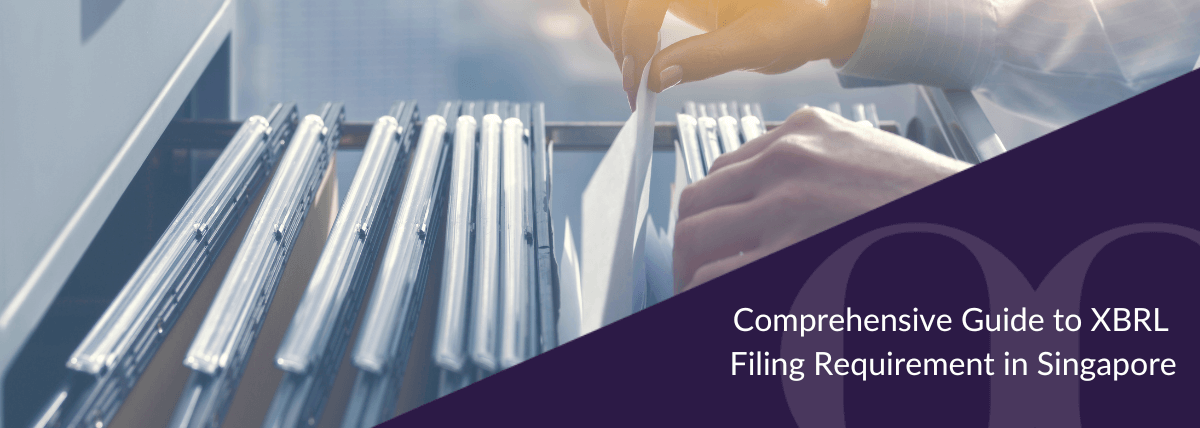In the heart of Southeast Asia’s thriving markets, Singapore’s growing economy and political stability continue to attract multinational corporations and startups. Eager to build on the country’s reputation as an economic powerhouse, the Singapore Government’s policies and regulations have created a favourable environment for businesses to thrive in.
If you are a business owner or investor considering setting up a company in Singapore, you are not alone. Every month, thousands of businesses are registered in Singapore.
In this article, we explore the various benefits of establishing a business in Singapore, the different types of business structures and important considerations when embarking on the process of company registration.
Seven benefits of setting up a company in Singapore
There are many reasons investors, entrepreneurs and company directors choose to form a company in Singapore. Here are some salient factors:
- There is no minimum shareholder requirement.
- There is no minimum requirement for paid-up capital when incorporating a private limited company.
- There is no foreign exchange control.
- Singapore is close to Asia’s thriving markets.
- Singapore offers favourable tax incentives and low corporate tax rates.
- Singapore’s workforce is highly educated and skilled.
- Singapore is politically stable.
- Singapore has a sound legal system and a mature financial infrastructure.

SEVEN BENEFITS OF SETTING UP A COMPANY IN SINGAPORE
Singapore maintains a relatively open investment environment and imposes no minimum shareholder requirement on businesses.
“Because there are no restrictions on foreign ownership, a foreign entity can own the Singapore subsidiary or fully own a Singaporean company, either as a corporate or individual investor,” says Eunice Hooi, Head of Corporate Secretarial, BoardRoom Singapore.
Singapore has a robust free-market economy and generous investment policies. It also has no minimum requirement for paid-up capital when incorporating a private limited company (PLC). Because of this, a PLC, which is one of the most common business types in Singapore, can be incorporated with just SGD 1.
Generally, Singapore has no restriction on foreign exchange transactions and capital movements. “From an investment perspective, this means that it is easy to remit or repatriate capital and/or profits in and out of Singapore,” says Eunice.
Singapore’s location is also very attractive to investors. It is in a strategic location close to the massive economies of both China and India.
With well-established infrastructure, including one of the busiest airports in the world and one of the largest ports in Asia, the country is well-placed to do business with other thriving economies.
Singapore has a range of tax incentives that are attractive to investors and boasts one of Asia’s lowest corporate tax rates of just 17%.
Singapore has also implemented the one-tier tax system, which means businesses pay corporate tax at the corporate level just once. Therefore, no additional taxes are imposed on the income, and shareholders are exempt from taxation on any dividends distributed by the company.
Singapore boasts numerous corporate service providers, offering entrepreneurs a wide array of options when setting up a business.
The country is also home to a highly educated and literate workforce. That is reassuring for foreign investors who are setting up a company in Singapore and are looking for local talent to hire.
For business owners looking to establish a business in a country they have never operated in before, stability and security are paramount. Singapore is politically stable, with nations around the world recognising Singapore’s business-friendly regulations, reliable policies and high governance. This makes it an attractive and low-risk location for businesses.
Types of company registration in Singapore
There are several ways to structure a business in Singapore. These include:
- sole proprietorships;
- partnerships;
- private limited companies (PLC);
- limited liability partnerships (LLP); and
- variable capital companies (VCC).
This gives entrepreneurs peace of mind when setting up a company. It also means they can raise capital relatively easily. They can do this by increasing the number of shareholders or by issuing more shares to current shareholders.
In a business with this type of structure, the partners will not be held personally liable for any business debts incurred by the LLP. However, an individual partner may be held personally liable for claims from losses resulting from their own wrongful act or omission.
The flexibility of this structure allows the investors to either incorporate a new VCC in Singapore or redomicile their existing offshore investment fund to Singapore as a VCC.
The structure also offers flexibility in how shares are issued and redeemed.

How to choose a company structure
Entrepreneurs and investors are advised to have a carefully considered business plan and decide whether the business will be a short-term or long-term venture when starting a company. Those factors will affect the best kind of business structure they should set up in the establishment phase.
When it comes to ending the business, Eunice says there are several options. “It can be done through liquidation. Another way is through a simple process called striking off, when the company has a clean balance sheet. A third option would be to sell the business through an asset divestment or a share divestment.”
Kevin Cho, Director of Corporate Secretarial, BoardRoom Singapore, highlights the importance of considering the benefits specific to Singapore when choosing a business entity. “For example, Singapore offers tax benefits to startups established as private limited companies. These businesses are entitled to a new startup tax exemption for its first three consecutive tax years I.e. 75% exemption on the first SGD 100,000 of normal chargeable income* and a further 50% exemption on the next SGD 100,000 of normal chargeable income*.”
*Normal chargeable income refers to taxable income that is subject to tax at the prevailing Corporate Income Tax rate of 17%.
Steps to setting up a company in Singapore
Business owners and investors exploring business registration in Singapore should engage with a professional corporate service provider who can guide them on the processes of setting up a business. This includes making sure the company name is available and suitable for registration, deciding on the entity structure, and ensuring compliance with local and regional regulatory requirements at all times.
Once the business is formally registered with the local authority, namely the Accounting and Corporate Regulatory Authority (ACRA), it may purchase its certificate of registration and business profile which contains the necessary corporate information from ACRA. The business will also be assigned a unique entity number then.
The business also has to determine its share capital and be sure to abide by the rules governing shareholders and directors. For example, a minimum of one local resident director must be appointed. It is noteworthy that foreign individuals can serve as directors if they meet specific criteria. Additionally, the company should consider engaging a qualified company secretary.
It can also be helpful to engage a professional corporate service provider as the tax treatment of companies set up in Singapore varies and depends on the type of business being set up.
“PLCs are taxed as separate entities at the corporate tax rate of 17% on the business profits,” explains Eunice. “On the other hand, LLPs are given a tax-transparency treatment, meaning they are not taxed at the LLP level. So the owners or the partners will be taxed on their share of income from LLP based on the relevant tax rates that are applicable to corporate partner and individual partner.”

The right advice for your move into Singapore
Singapore offers attractive incentives for foreign investment and is a politically stable, easily accessible and talent-rich country in which to set up business. If you’re considering a move into Singapore as a business owner, director or investor, BoardRoom can help with all aspects of the business lifecycle.
BoardRoom offers a range of services including corporate secretarial, accounting, tax, payroll and ESG advisory services.
For help establishing your business in Singapore, please contact us today.
Related Business Insights
-

08 Jul 2024
Your Guide to Corporate Tax Filing in Singapore
Learn to navigate corporate tax filing in Singapore effectively and ensure timely, compliant submissions with our c …
READ MORE -

14 Jun 2024
Comprehensive Guide to XBRL Filing Requirement in Singapore
Explore the essentials of XBRL filing in Singapore, covering mandatory requirements, benefits, preparation steps, a …
READ MORE -

11 Jun 2024
Corporate governance best practices at all levels of the company
Corporate governance goes beyond compliance, shaping the fabric of an organisation. Discover the corporate governan …
READ MORE

